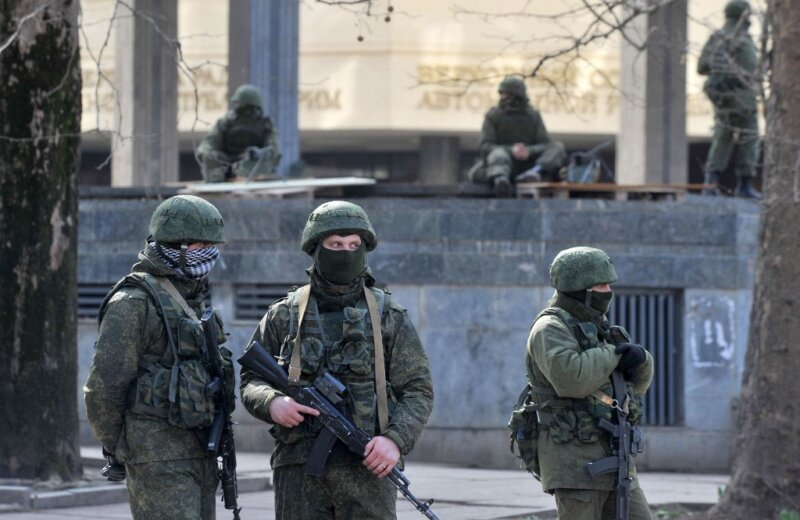
The United States is considering recognizing Crimea as Russian territory as part of a broader peace deal with Ukraine, according to sources cited by Bloomberg.
The potential concession is seen as part of U.S. President Donald Trump's efforts to advance a cease-fire and finalize an agreement between Moscow and Kyiv.
While no final decision has been made, people familiar with the discussions said the proposal is being reviewed as part of a framework to end hostilities, freeze the current frontlines, and potentially ease sanctions on Russia in return for a lasting cease-fire.

Crimea was annexed by Russia in 2014 following a controversial referendum held under military occupation.
The move has been widely condemned by the international community as a violation of international law, with most countries refusing to recognize the annexation to avoid legitimizing the use of force to change borders.
Ukrainian President Volodymyr Zelenskyy has consistently rejected any proposal involving territorial concessions. "We do not discuss territories until the ceasefire," Zelenskyy said Thursday in Kyiv. "We will never consider Ukrainian lands as Russian."

The proposal reportedly includes halting Ukraine's aspiration to join NATO and maintaining Russian control over currently occupied areas beyond Crimea, including Zaporizhzhia, Kherson, Luhansk, and Donetsk.
The talks are being coordinated with European allies, who have expressed concern over any recognition of territory annexed by force.
One official familiar with the negotiations emphasized that the proposals do not yet represent a definitive settlement and will require broader consultation with Ukraine and European allies.
Talks are contingent on Russia agreeing to halt military operations.
U.S. Secretary of State Marco Rubio noted that Ukraine's request for security guarantees is legitimate but said detailed terms are still under negotiation. "Every sovereign nation on Earth has a right to defend itself," Rubio said Friday.

The developments followed recent meetings in Paris involving French President Emmanuel Macron, U.S. envoy Steve Witkoff, and officials from France, Germany, the U.K. and Ukraine.
Discussions focused on ceasefire monitoring, peacekeeping options, and long-term military support for Kyiv. Additional negotiations are expected next week in London.
Trump indicated Friday that while the U.S. remains committed to a peace deal, it is prepared to withdraw from talks if progress stalls. "If for some reason, one of the two parties makes it very difficult, we’re just going to say, you’re foolish," Trump told reporters in the Oval Office.

Recently, Türkiye marked the 11th anniversary of Crimea's annexation by issuing a written statement through the Ministry of Foreign Affairs, reiterating that it does not recognize the de facto situation on the peninsula.
"On the anniversary of the annexation of Ukraine's Autonomous Republic of Crimea by the Russian Federation through an illegitimate referendum ... we reiterate that Türkiye does not recognize the de facto situation in Crimea, which constitutes a violation of international law," the ministry said.
Türkiye has consistently supported Ukraine's territorial integrity and sovereignty, advocating for the rights of Crimean Tatars and aligning with Western partners on the matter.

Despite ongoing negotiations, Russia continues to conduct airstrikes in Ukraine.
A partial cease-fire covering the Black Sea collapsed earlier this month. Last week, a ballistic missile equipped with cluster munitions struck the city of Sumy, killing 35 people, according to Ukrainian officials.
Witkoff, who has reportedly met Russian President Vladimir Putin three times, stated in a media appearance that the key to a deal involves five disputed regions. Moscow insists any agreement must acknowledge its control over those areas.

Efforts by France and the U.K. to establish a postwar reassurance force and ensure Ukraine's military capabilities are part of the broader strategy to encourage long-term stability. However, lifting European Union sanctions would require unanimous approval from member states—a challenging prospect without Russian withdrawal.
Observers say the success of the proposal depends on securing a cease-fire, clarifying Ukraine's future security arrangements, and determining whether Washington and its allies can bridge divergent views on territorial concessions.



